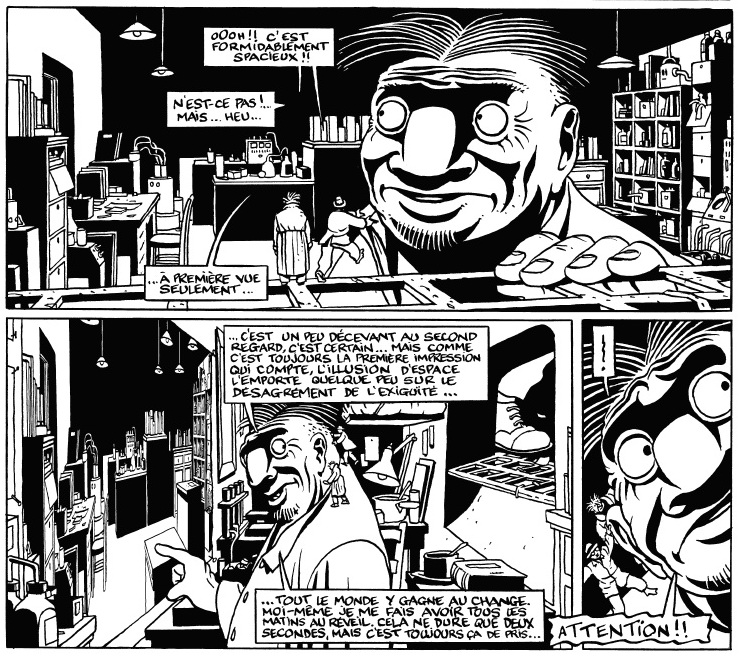L'Hyperrêve, the new album in Marc-Antoine Mathieu's flagship series (Delcourt), presents an escapade to the land of dreams of his favorite character, but not only.
The Hyperdream: Original series, literally and figuratively
Initially, there was a series of albums that appeared regularly during the 1990s in which we followed the dreamlike and fantastic adventures of Julius Corentin Acquefacques, prisoner of dreams (sophisticated anagram of Kafka, spelled backwards: "Akfak". Which immediately informs about the nature of the universe that we will discover, in black and white moreover). Each volume presented an "editorial originality", trademark of the series: a missing box, a spiral developed on three pages or a head-to-toe reading, in particular; Processes used by the brilliant author to relate the content and form of his stories tarabiscotés.
Mathieu: sole author
Marc-Antoine Mathieu then turned away from the series to create other independent works still motivated by his formal research that he constantly links to the depths of his subjects. And then, after nine years (in 2004), appeared the fifth volume of Julius' adventures, this time confronted with 3D. Once again, we thought the series was over, then after nine more years, we saw The Shift arrive on the shelves of our favorite bookstores.  In this grim year 2020 (only seven years later this time), here comes the new vintage: L'Hyperrêve. And we can say that Marc-Antoine Mathieu spared no effort to satisfy the patience of the reader. This seventh volume is undoubtedly his most vertiginous work, which will certainly be better appreciated on rereading. As always, Julius evolves in a universe that he does not know to be the real or the imaginary, the dream or the reality. This time, his dream mixes with that of his neighbor Hilarion (a nod to another famous neighbor, no doubt) and both will be confronted with the infinity of things and nothing. This time, more than ever, we enter the field of philosophy and science, and of course the content does not cease to question the container. It is a masterful balancing act that Mathieu engages in, and it may no doubt put off some new readers (who will be advised to approach the series in order to fully appreciate it). But the regulars will be delighted. The countdown is on: maybe next time we will only have five years to wait to discover the next adventure of Julius Corentin Acquefacques, prisoner of dreams.
In this grim year 2020 (only seven years later this time), here comes the new vintage: L'Hyperrêve. And we can say that Marc-Antoine Mathieu spared no effort to satisfy the patience of the reader. This seventh volume is undoubtedly his most vertiginous work, which will certainly be better appreciated on rereading. As always, Julius evolves in a universe that he does not know to be the real or the imaginary, the dream or the reality. This time, his dream mixes with that of his neighbor Hilarion (a nod to another famous neighbor, no doubt) and both will be confronted with the infinity of things and nothing. This time, more than ever, we enter the field of philosophy and science, and of course the content does not cease to question the container. It is a masterful balancing act that Mathieu engages in, and it may no doubt put off some new readers (who will be advised to approach the series in order to fully appreciate it). But the regulars will be delighted. The countdown is on: maybe next time we will only have five years to wait to discover the next adventure of Julius Corentin Acquefacques, prisoner of dreams.









































